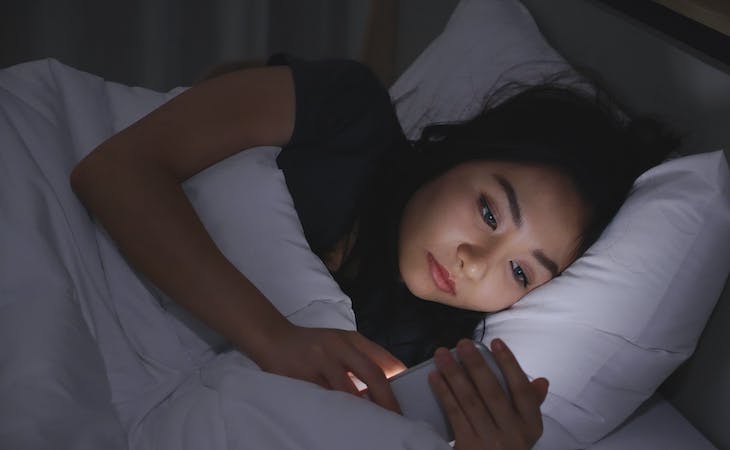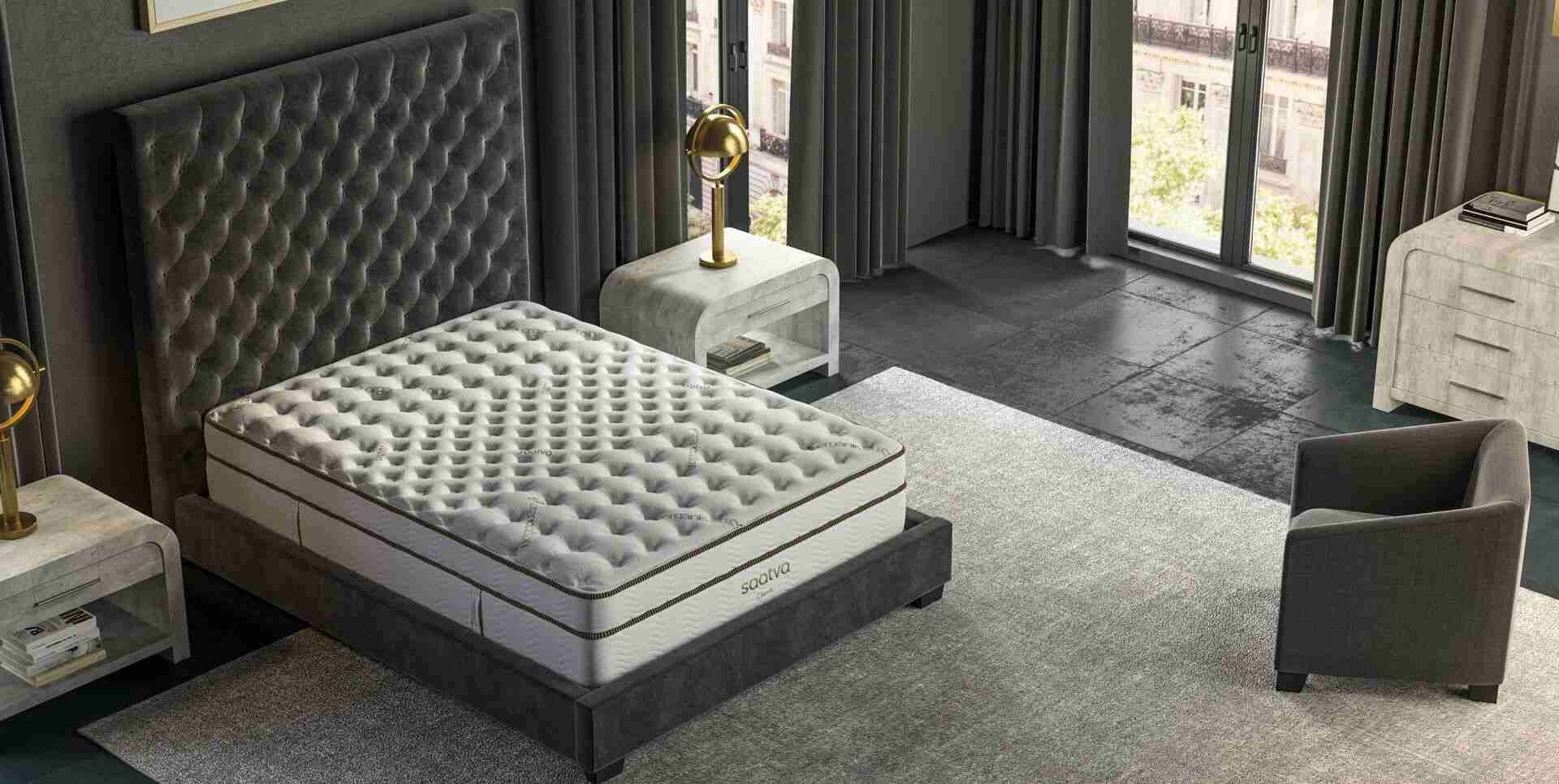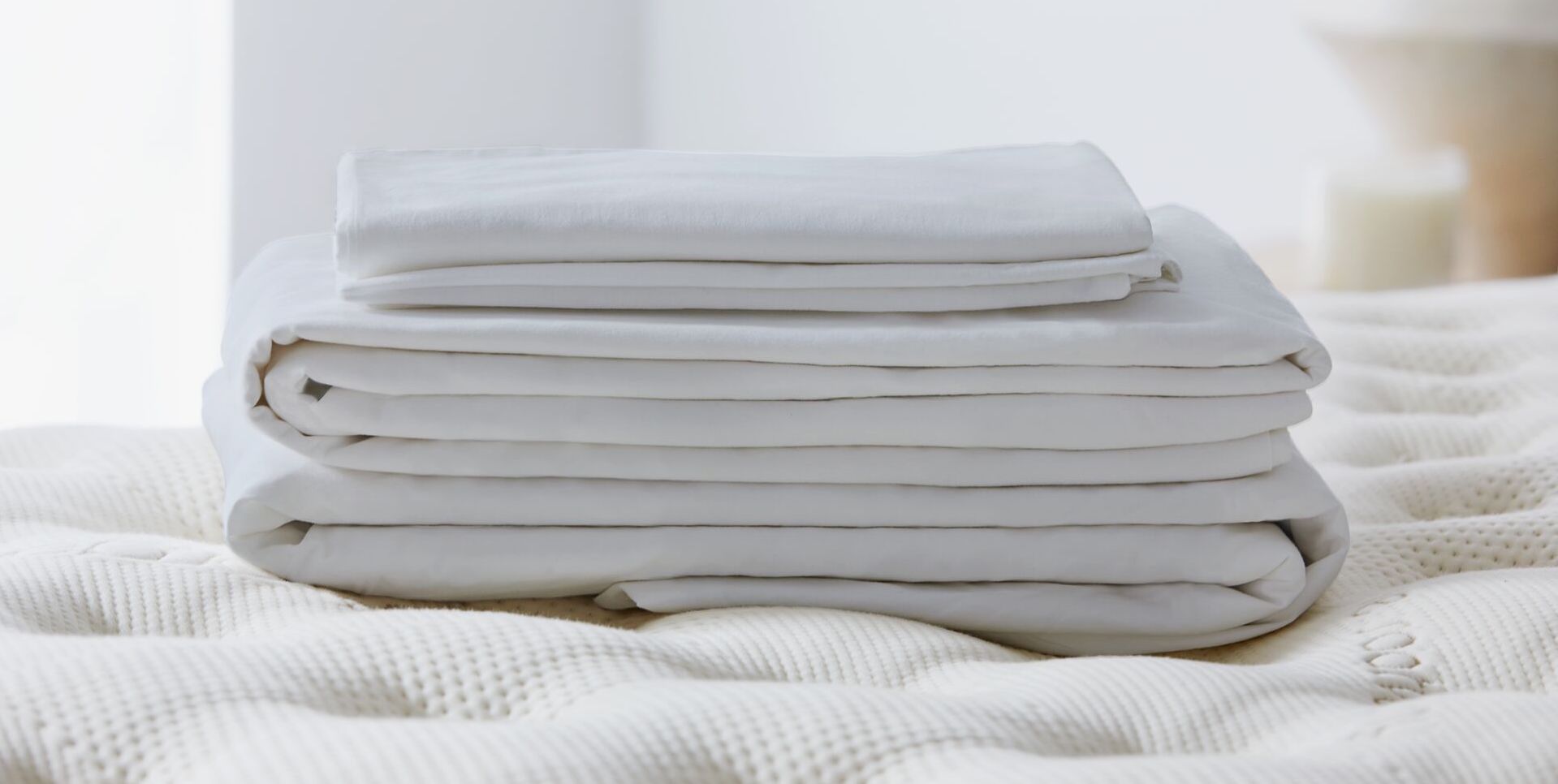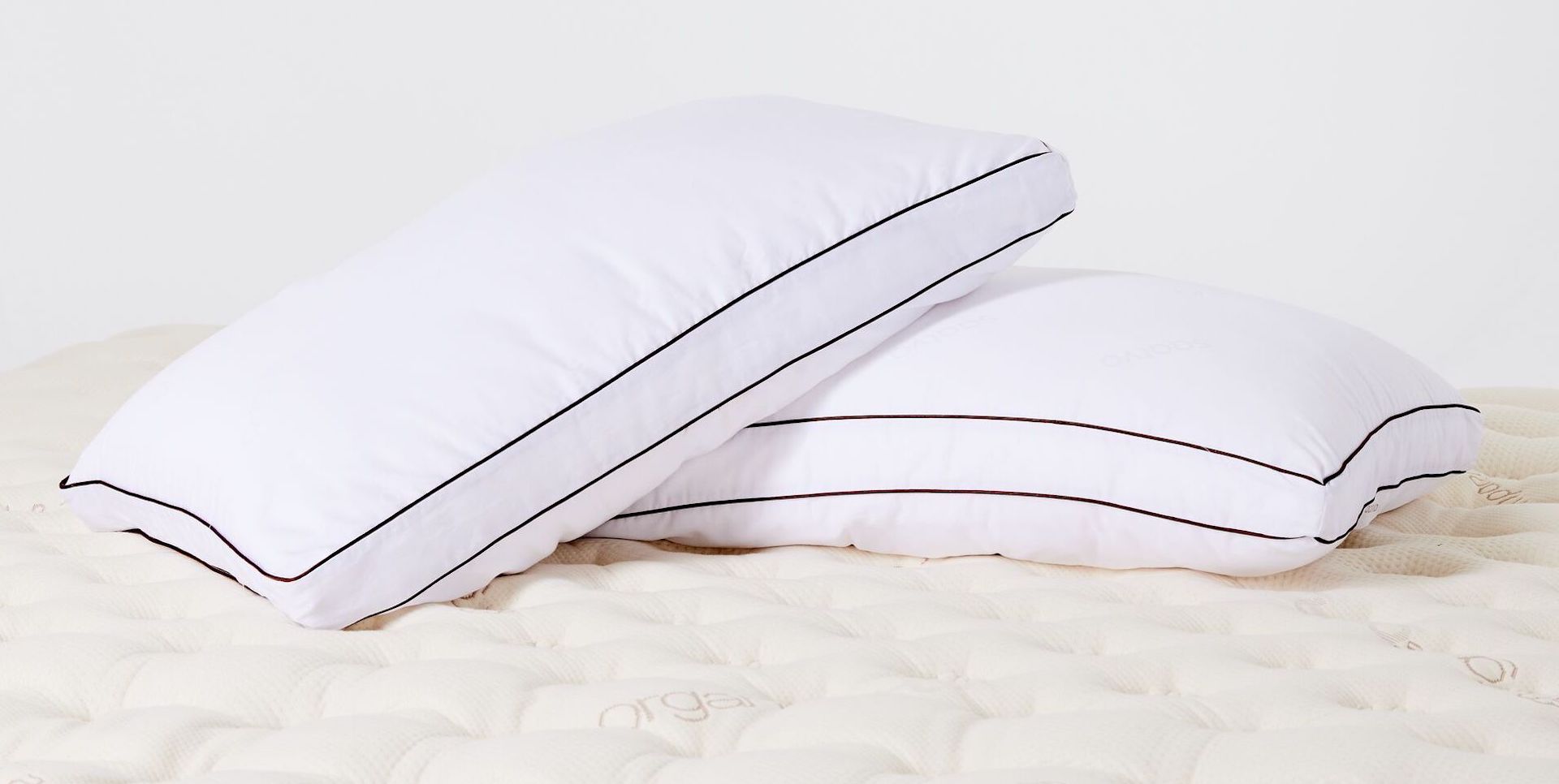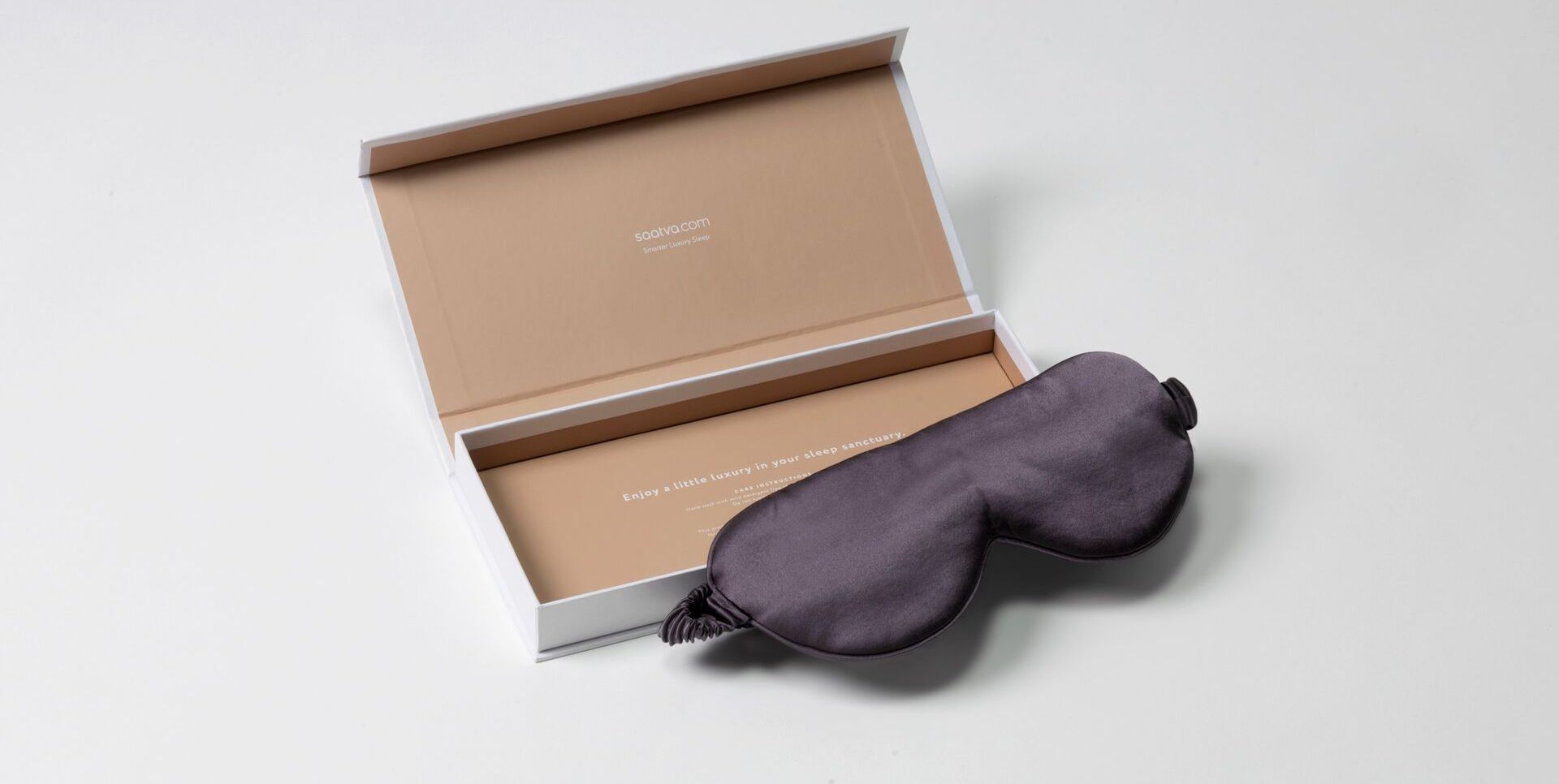According to our recent survey of 2,000 Americans across four different age groups, one in five Americans struggled with insomnia in 2024. Per our survey results, finances, physical health, work, and friends/family were the top sleep disruptors for people in the past year.
As we’ve reported previously, lack of sleep can cause more anxiety, leading to a vicious cycle where your stress causes you to be unable to sleep and your inability to sleep causes more stress.
As the new year gets into full swing, it’s a great time to reassess your habits and put a renewed focus on getting a good night’s sleep so you can start 2025 off on a well-rested note.
Here’s how to calm your stress—and snooze more soundly this year.
How to prioritize sleep in 2025
1. Eliminate screen time before bed
According to the National Sleep Foundation, “89% of adults and 75% of children have at least one electronic device in their bedrooms.”
While electronics in the bedroom aren’t something out of the ordinary, screen time on any device can disrupt your body’s circadian rhythm. That’s because screens emit blue light, which inhibits your brain from producing melatonin, the sleep hormone.
It’s a good idea to power down your phone an hour or two before bed—no matter how much you want to do one last scroll of the news or check in on your social media accounts.
Of course, breaking this habit is easier said than done, but it’s possible. Here are two helpful tips for making your bedroom technology-free: create a designated space for electronics and set consistent “screen off” times:
- Place your mobile devices in a space away from where you sleep, so you won’t be tempted to use them.
- Set a time to turn off your electronics, so you get used to not using your screens before bed.
This can help promote a regular sleep schedule. (If you don’t know what to do when the screens turn off, you can opt to read a book instead!)
2. Journal before bed
Writing your thoughts down on paper can drastically improve the quality of your sleep, say therapists.
“The benefits of morning writing include clarity, focus, and intention-setting while writing before you turn in can bring useful closure to the day and enhance the likelihood of falling asleep faster and staying asleep longer,” says Kathleen Adams, licensed professional counselor, founder/director of the Denver, Colorado-based Center for Journal Therapy, and author of Journal to the Self.
When you’re able to handle stress positively, it can be much easier to catch Z’s. Write down your frustrations and worries from the day, things that make you happy, or even a to-do list to prep you for the next day. That way, your mind isn’t cluttered with all these thoughts when you hit the hay.
3. Make a bedtime routine
We’ve said this before, but we’re going to say it again: Build a routine and stick to it! A bedtime routine is crucial for teaching your body when to sleep and when it should wake up—and the best part about the process is that it’s all up to you.
When it comes to putting together a routine, you have many options. You can brush your teeth, run a warm bath, read for 20 minutes, or drink some tea.
Just remember: Building a routine shouldn’t be tedious—and as long as you incorporate activities that help you wind down, it should be something you look forward to every night.
Once you’ve built your routine, it’s important to stay consistent—both with the activities you do and the time you do them. This is especially important when it comes to the time you finally get some shuteye!
“Each part of your routine should be done around the same time so your body is on a rhythm that will encourage sleep,” says Scott Drapeau, a licensed massage therapist specializing in treatment and athletic massage.
4. Exercise
Ever heard of the phrase, “new year, new me?” Well, besides looking good by exercising, you can also feel good and sleep even better!
Simply moving your body (even for as little as 20 minutes a day) can do wonders for your overall health and improve the quality of your sleep.
Studies show exercise can alleviate sleep-related problems and help you get adequate rest by reducing the time it takes you to fall asleep once you turn the lights out.
Not sure where to start? We put together a list of exercises you can do in bed and yoga poses to help you sleep.
5. Ditch the long naps and the all-nighters
Getting your full eight hours of sleep at night can be tough for many reasons, especially when you deprive yourself of sleep or sleep during the day. On busy days, you may feel more inclined to take long naps to keep you going or skip shuteye altogether to get work done.
But regardless of how helpful naps and all-nighters can be in moments of tiredness or stress, they’re quick fixes that can wreak havoc on your sleep cycle and be difficult to bounce back from.
Instead of taking long naps, opt for a short, 10- to 20-minute nap to feel refreshed for your evening and prevent ruining your snooze at night.
All-nighters, on the other hand, don’t exactly have an alternative besides better time management to prevent them, but you can minimize the number of all-nighters you pull and learn how to better prep, execute, and recover from them.
6. Create your ideal sleep environment
Your sleep space has a huge impact when it comes to getting good shuteye. Consider your light, your room temperature, the noise around you, and the clutter in your bedroom—it only takes one of these to keep you up all night.
Check out these three tips to create your ideal sleep environment:
- Cut the lights out. Light can prevent you from falling asleep because it tricks your body into thinking it is daytime. Opt for blackout curtains or a sleep mask so you don’t peep a single light in your bedroom.
- Keep it cool. Lower your thermostat to somewhere between 60-67 degrees Fahrenheit, the ideal temperature range for optimal sleep. You can also use cooling sheets to help prevent waking up with night sweats.
- Tidy up your bedroom. It’s hard falling asleep on a bed you share with unfolded laundry, textbooks you were supposed to study with, and a bunch of decorative bedding. So, remove any items that aren’t sleep-related from your bed and bedside table. That way you have space to move and stretch. It’ll also mentally make you feel better knowing your space is de-cluttered, which, in turn, will make it easier to fall asleep.
FAQs
Why should you make sleep a priority?
You should make sleep a priority because a lack of sleep can increase anxiety, leading to a vicious cycle where your stress causes you to be unable to sleep and your inability to sleep causes more stress.
Should I prioritize sleep or studying?
To perform well at school, your job, and other responsibilities, you should prioritize sleep to feel well-rested and energized. Otherwise, your tiredness may negatively influence your focus, concentration, memory, problem-solving, and judgment.
What are the best hours to fall asleep?
Research says the best time to sleep for optimal heart health is between 10 pm and 10:59 pm.
How do you make sleep a priority?
You can make sleep a priority by practicing self-care activities that prepare you for bedtime. Exercise to get tired for bed, journal to clear your mind, and create a bedtime routine that slowly relaxes you throughout your evening so you’re ready to drift off by the time you hit the sheets.
Get better sleep with Saatva in 2025
Sleep is an investment, and the right mattress can also go a long way toward encouraging better sleep. If it’s been a minute since you’ve replaced your mattress, then consider getting a new one this year.
Saatva offers a variety of high-quality mattresses and bedding tailored to your sleep needs so you can get better shuteye. Plus, all of our mattresses come with a 365-night home trial so you can try one out before deciding if it’s right for you.
Take our online mattress quiz to find out which of our mattresses is your perfect match.

